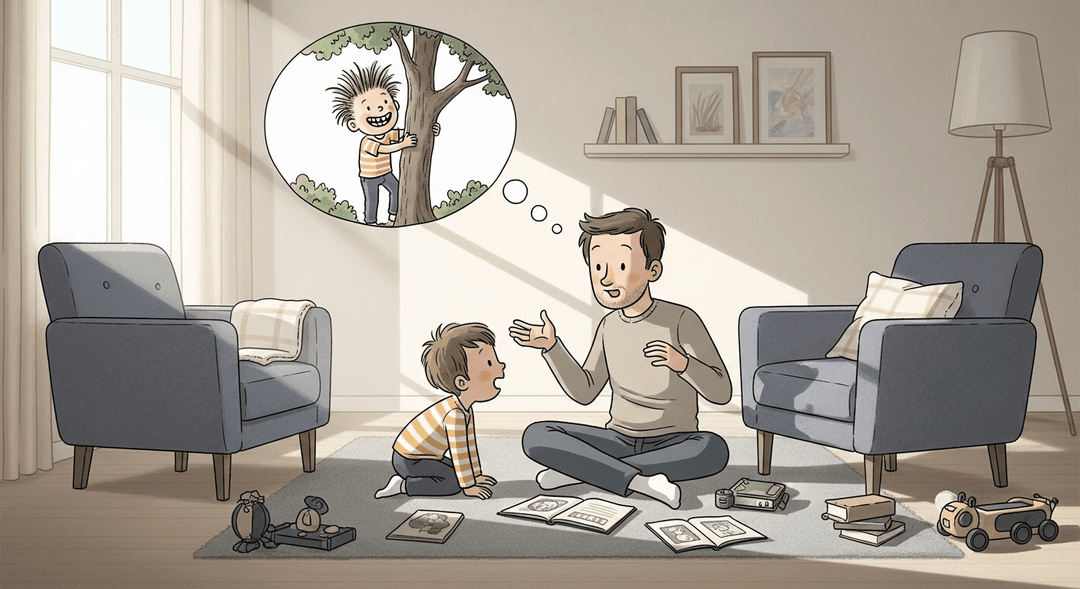Talk About Your Own Childhood (Age-Appropriate Stories)
Ever tried explaining to your kid that you, too, were once a tiny human with questionable haircut choices and a knack for getting stuck in trees? Welcome to storytime, where your greatest hits (and flops) become family lore. If you’re ready to trade in your 'parental authority' for a few minutes of 'legendary goofball' status, this one’s for you.
Sharing personal stories boosts your child’s empathy and sense of connection, lighting up the brain’s social circuits (hello, mirror neurons!). It helps kids see that mistakes and feelings are normal, and that you’re a safe person to talk to about their own mess-ups. Plus, it builds trust and strengthens your bond—storytime literally wires you together.
How to do it
-
Choose stories that fit your child’s age and current experiences.
For example, if your child is scared of monsters, share your own story about being afraid of monsters under the bed. -
Keep your storytelling light and honest.
Don’t be afraid to include silly or embarrassing details—like the time you peed your pants at the school play. -
Encourage your child to ask questions and join in the laughter.
-
Invite your child to share their own stories, too.
-
Remember, the goal isn’t to be a hero, but to show your child that it’s okay to be human.
Tips:
- Match the story’s theme to what your child is experiencing.
- Use humor and honesty to make the story relatable.
- Make storytelling a two-way conversation.
- Focus on connection, not perfection.
